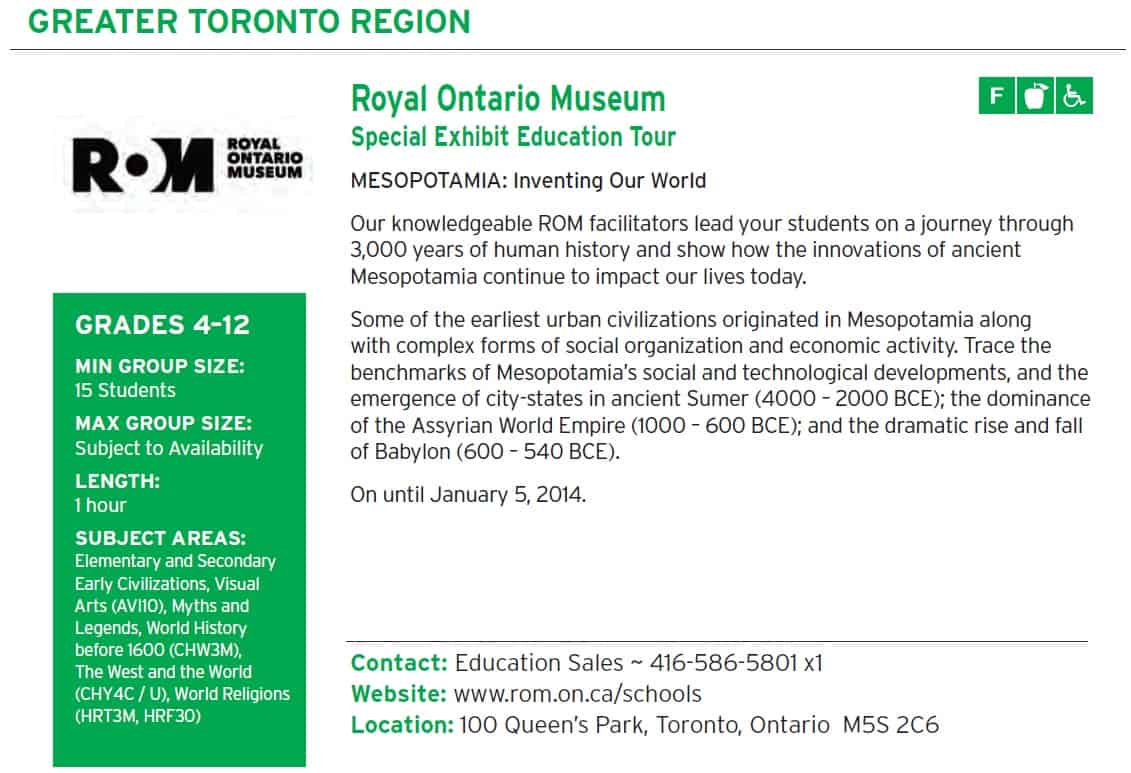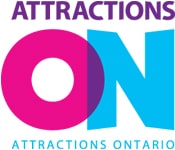[the_ad_group id=”293″]
Are We There Yet?
Attractions Ontario‘s Are We There Yet? Field Trip Planner was developed in consultation with the Student Youth Travel Association, Ontario Motor Coach Association, tour operators focusing on the student travel market, retired teachers, and School Board representatives. This province-wide publication is designed to present quality, curriculum-based educational programs to teachers and youth group leaders across Ontario.
This publication is currently in the market. As well, Attractions Ontario supplies a digital version of the guide directly to teachers via school board internal e-mail; 53 school boards agreed to distribute this on our behalf. We will also be producing a limited number of printed copies for those Boards that require a printed copy, or for those that request them.
Click the image below to view our Interactive Guide
Example of Listing from Are We There Yet?:

What the Travel Industry Act Means to Teacher’s Planning School Tours
What the Ontario Travel Industry Act States: Teachers are exempt ONLY when the following criteria are met:
- The person arranging the trip must be employed to teach in an elementary or secondary school, university or college of applied arts and technology.
- The exemption applies to one-day tours for students of the school as part of the curriculum or other travel services made through a registered travel agent as part of the curriculum.
- Travel services must be approved by the appropriate board, principal, governing body or official.
- The person employed by the educational institution must receive no direct or indirect gain or profit from arranging for the travel services other than participating in the travel service.
A Travel Service is defined as “transportation, sleeping accommodation or other services for the use of a traveller, tourist or sightseer”.
A Travel Agent means “a person who sells, to consumers, travel services provided by another person”.
Note: This is an interpretation of the Act only – please see the Travel Industry Act 2002 and its regulations dated July 1st, 2005 for all details and legal requirements.)
- The law in Ontario requires that a travel service which includes transportation and another travel service, for example a hotel stay is sold through a registered retailer/tour operator under the Travel Industry Act of Ontario. These are referred to as tours.
- Teachers who “sell” or that are “arranging” tours without using a properly registered retailer are contravening the Travel Industry Act.
- The Compensation Fund in the Travel Industry Act does not protect consumers (students) that purchase from an unregistered retailer/operator. Without this protection, the potential liability for the school board, school or the teacher increases if delivery of the tour is not fulfilled.
- Travel that is planned using a registered retailer/tour operator is protected by the Travel Industry Council of Ontario’s compensation fund. This helps protect the school board, school, teacher, student and parents.
Protection
Companies registered under the Travel Industry Act are required to meet strict financial criteria including working capital requirements and trust accounting thereby protecting travellers by holding payments in a trust account.
Canada’s New Bus Driver Hours of Service Are Impacting Educational & Student Travel
In January 2008, Canada’s driver hours of service rules were substantially changed and impacts are being felt by bus companies, tour operators, teachers and school boards. One of the biggest changes is the 16-hour limit on the length of a driver’s work shift, meaning a driver who reports to work at 6 am runs out of hours at 10pm that day. Another change is that bus drivers must be off-duty a full 8 consecutive hours between work shifts, whereas previously this break could be shortened. A third change is that bus drivers must have a 24-hour break every 14 days, regardless of how many hours are worked. The new rules have necessitated itinerary alterations and in some cases, a trip previously done by one driver may require a second driver for part of the journey. Teachers, principals and school board officials should note that the new rules now make the user of the service culpable in cases where the driver is requested, required or allowed to break the rules. This applies to school boards, principals, teachers and parent chaperones, etc. Therefore, it’s important for persons responsible for organizing or accompanying student trips to work with the carrier to ensure trips can be conducted legally under the new regulations.
How can OMCA help?
We can provide lists of our members who are legally registered as a travel agent/retailer and who plan group tours, contact info@omca.com for information.
Please refer to the Travel Industry Act of Ontario for details of the law. The above is for information purposes only and is our interpretation of the Act. The Travel Industry Act can be found on the TICO website at www.tico.ca.
Founded in 1929, the OMCA is a full-service trade association representing 80 bus operators, over 100 tour operators and over 800 affiliated sellers to the group tour industry including attractions, destinations, hotels, and retail outlets across North America. Operator members provide scheduled intercity, charter, tour, school bus, contract, shuttle, airport and transit services. The OMCA works with all levels of government to outline the industry’s contributions and concerns regarding a seamless, sustainable public and private passenger transportation network.
Attractions Ontario would like to recognize First Student as its sponsor for the 2015 Field Trip Planner

